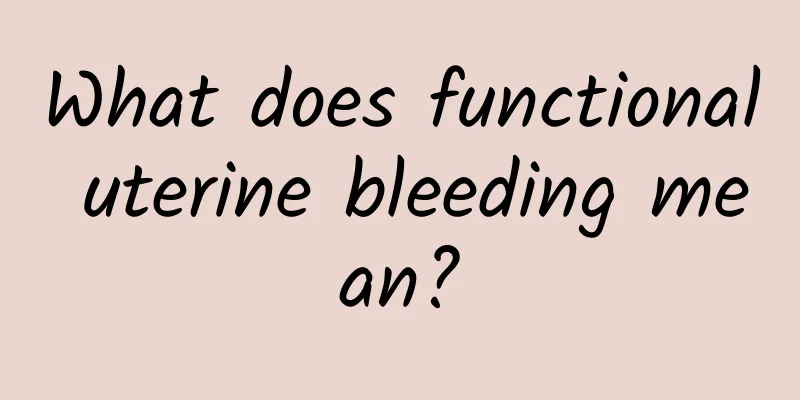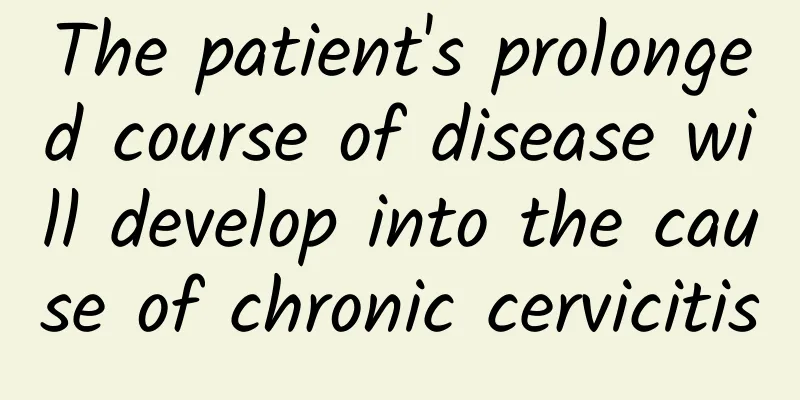What does functional uterine bleeding mean?

|
Dysfunctional uterine bleeding is a type of abnormal uterine bleeding caused by non-organic lesions. It is mainly related to endocrine disorders and is common in adolescent and perimenopausal women. Treatment includes medication, lifestyle adjustments, and surgical intervention when necessary. 1. Endocrine disorders are the main cause of functional uterine bleeding. Adolescent women are prone to hormone disorders due to the immature hypothalamus-pituitary-ovarian axis, which leads to irregular menstrual cycles and abnormal bleeding. Perimenopausal women have irregular bleeding due to ovarian dysfunction and estrogen level fluctuations. Mood swings, excessive stress, and excessive weight loss may also interfere with endocrine balance and induce functional uterine bleeding. 2. Drug treatment is the main method for functional uterine bleeding. Oral contraceptives can regulate hormone levels and help restore normal menstrual cycles; progesterone drugs such as dydrogesterone can be used to stop bleeding and adjust the cycle; non-steroidal anti-inflammatory drugs such as ibuprofen can relieve pain and reduce bleeding. Drug treatment should be carried out under the guidance of a doctor, and avoid self-medication. 3. Lifestyle adjustment can help improve symptoms. Maintain a regular work and rest schedule, avoid staying up late and excessive fatigue; eat more foods rich in iron and vitamins, such as lean meat, spinach, and red dates, to prevent anemia; moderate exercise such as yoga and walking can relieve stress and promote endocrine balance. Avoid excessive dieting and strenuous exercise to avoid aggravating symptoms. 4. For patients who are ineffective with drug treatment or have severe bleeding, surgical intervention may be required. Endometrial resection can reduce bleeding by removing part of the endometrium; uterine artery embolization controls bleeding by blocking the blood flow of the uterine artery; hysterectomy is the last treatment method for patients who have no fertility needs and severe symptoms. The surgery should be selected according to the patient's age, fertility needs and severity of the disease. Although functional uterine bleeding does not directly threaten life, long-term bleeding may lead to anemia, infection and other problems, affecting the quality of life. Patients should seek medical treatment in time, make a clear diagnosis and take targeted treatment. At the same time, maintaining a good living habit and mentality can help prevent and relieve symptoms. |
<<: What are the symptoms of adnexitis in the elderly?
>>: Is the pregnancy inside the uterus ectopic?
Recommend
Find out what factors are the causes of vaginitis
The high incidence of vaginitis is common in life...
Black coffee tastes bitter, but it actually contains sugar? Nutrition professor: Be careful about adding "this kind of sugar" to gain weight
Black coffee tastes bitter, but it actually conta...
What are the early symptoms of ectopic pregnancy?
What are the early symptoms of ectopic pregnancy?...
What acupuncture points should be pressed for uterine fibroids and polyps? What examinations should be done for uterine fibroids and polyps?
Uterine fibroids and polyps are common gynecologi...
What are the characteristics of the symptoms of cervical warts at different stages?
In recent years, the number of women suffering fr...
Will chocolate cysts affect pregnancy?
Chocolate cysts, also known as ovarian endometrio...
How to treat intramural uterine fibroids
How to treat intramural uterine fibroids? Can con...
Vaginitis Vaginal skin turns white
Whitening of the vaginal skin may be caused by va...
What are the causes of uterine fibroids?
In modern society, many women suffer from uterine...
Does an ovarian mass affect menstruation?
Does an ovarian mass affect menstruation? Young w...
Is ectopic pregnancy contagious?
Is ectopic pregnancy contagious? There are many f...
What does nursing care for patients with uterine effusion include?
The occurrence of uterine effusion brings great i...
What should I do if a little girl has irregular menarche?
Irregular menstruation in little girls is a norma...
What to do if you have mild cervical erosion after pregnancy
Cervical erosion can be divided into three types:...
How to treat reddish brown vaginal discharge? It is related to the cause of the disease
The treatment of reddish-brown vaginal discharge ...









